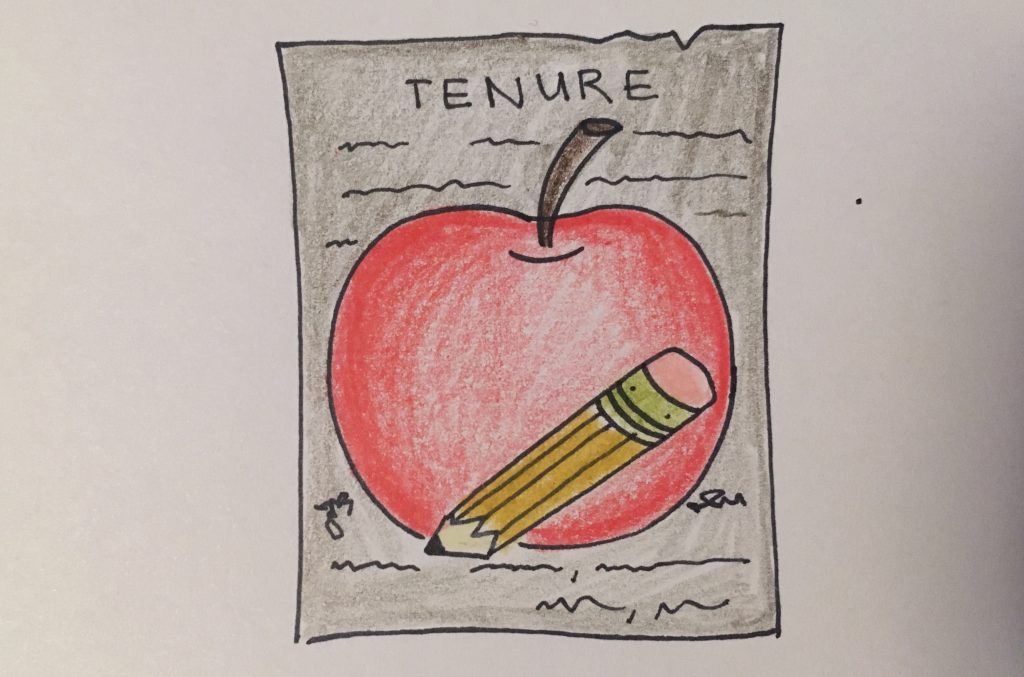After working for several years on a probationary basis, the hard work of diligent teachers may finally be rewarded. After spending years trying their best to prepare their students for a college education or career in the workforce, they may receive tenure, which some have called the winning lottery ticket in academia.
To many Ridgewood High School students, teacher tenure is a foreign concept. Tenure is a policy that provides job security for teachers, so they cannot be fired for unjust reasons, such as political or personal beliefs. The word “tenure” is derived from the Latin term “tenere”, meaning to hold or have. Likewise, the policy ensures that deserving teachers hold onto their jobs. The history of teacher tenure dates back to the late 19th century, when teachers could lose their jobs for almost anything. Race, religion, and gender were frequent reasons for a teacher’s dismissal. For instance, in the 1920s, a female teacher could be fired for getting married, or even wearing pants. Teaching was a precarious job until 1885, when the National Education Association addressed the need to provide protection for teachers in the United States. New Jersey was one of the first states to adopt teacher tenure in 1909, when it passed the first comprehensive K-12 tenure law in the US. Teacher tenure has been around for many years, and has changed significantly as time has progressed.
In addition to protecting teachers from being dismissed for non-work related reasons, teacher tenure prevents a school district from replacing an experienced teacher with a younger one whom they can pay less. School districts have a fixed budget, and some cannot afford to pay employees who have been working for decades and demand higher wages. In this situation, tenure prohibits the school from firing the more skilled teacher, because salary disputes are not a justifiable cause for firing. Moreover, tenure gives teachers the academic freedom to discuss unpopular topics in the classroom without fear of backlash. At RHS, the debate about gun violence has been a controversial topic within the past few months in the wake of the Parkland school shooting. It is important that teachers can educate their students on opposing sides of the issue, to give them a more holistic understanding about the topic.
Opponents to teacher tenure argue that the policy protects ineffective teachers from being removed from the school. There is a misconception that a tenured teacher cannot be fired. However, this could not be further from the truth. Tenure does not guarantee a job for life, but shields teachers from being terminated for unnecessary reasons. An educator with tenure may still be fired if they are performing poorly. Critics also question why teaching is one of the only professions to have tenure. In fact, federal judges are the only non-academic job positions that are granted this privilege. While this may seem unreasonable at first glance, these professions deal with controversial topics on a day to day basis, and risk being scrutinized for addressing uncomfortable matters.
There may be many myths about teacher tenure, but without it, Ridgewood High School would not have as many dedicated, talented educators, focused on developing the next generation.
James Ellinghaus
staff writer
Graphic: Maraea Garcia

